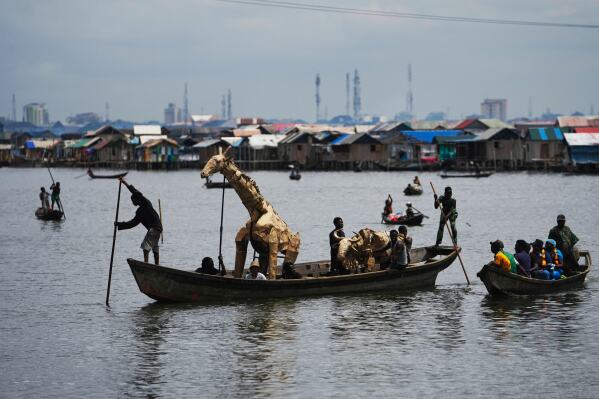
Makoko: Nigeria’s Floating Slum and the Natural Laws We Can No Longer Ignore
Nestled on the fringes of Lagos Lagoon, Makoko is one of the most visually striking communities in Nigeria—and perhaps one of the most misunderstood. Often called the “Venice of Africa,” this semi-aquatic slum emerged in the 19th century as a fishing village. It was founded by the Egun people, migrants from Badagry and neighboring Benin Republic, who made a home on the water using stilt houses.
Originally a thriving hub of fishing, boat building, and coastal commerce, Makoko was a symbol of adaptation—a community that found balance with the tides and lived closely with nature. However, as Lagos expanded and modernized, Makoko was left behind.
Over the decades, rapid urbanization, government neglect, overpopulation, and environmental degradation turned Makoko into a symbol of poverty and marginalization. It became a place where:
There is little to no access to clean water, sanitation, electricity, or schools.
Residents live in overcrowded wooden houses built over polluted waters.
Tonnes of waste are dumped into the lagoon daily.
Flooding and rising sea levels threaten homes and livelihoods.
Government evictions and demolitions loom without sustainable resettlement plans.
In the face of all this, Makoko still thrives with resilient families, strong communal ties, and cultural depth, but it is undeniably one of the most deplorable living environments in Nigeria today.
The Awakening: Climate Change Theatre in Makoko
In April 2025, a creative theatrical performance titled “The Herds” brought art to the waterlogged streets of Makoko. Featuring massive cardboard animal puppets, the show visually narrated the devastating impact of climate change on vulnerable communities. More than just a performance, it was a call to consciousness—for the world to look beyond its comfort zones and into the places we’ve chosen to ignore.
Natural Laws at Play – Lessons from Makoko
What we do comes back to us. Makoko's current state is the effect of decades of societal neglect, environmental abuse, and poor planning. If we destroy natural systems, we destroy ourselves. Our environment is not separate from us. Clean habits, sustainable policies, and inclusive planning are how we create better outcomes for everyone.
Everything is linked. The pollution in Makoko doesn't stay there. It seeps into our waters, affects fish supply, and degrades the health of Lagosians and beyond. When we heal a place like Makoko, we heal ourselves. Ignoring it damages us all—physically, socially, and spiritually.
All things move in cycles—growth, decay, rebirth. Makoko is in a phase of decay, but the presence of art and climate awareness signals the beginning of a conscious rebirth. We can choose to move with the healing rhythm of life or resist it. Either way, nature will complete the cycle—with or without us.
We’re caretakers, not rulers. The artists who brought life to Makoko’s waters with puppets are using creativity as a tool of care. They are doing what we all must do—use our gifts to restore, not exploit. Stewardship is not just about policies—it’s a personal responsibility. Every act of care brings alignment with higher natural truth.
Conclusion: Makoko Is Not Just a Place—It’s a Mirror
Makoko reflects both the failures and potential of humanity. It shows how far we fall when we abandon Natural Laws—and how much we can rise when we return to them. Whether we are artists, leaders, teachers, or neighbors, the call is clear:
Respect life. Heal what we’ve harmed. Align with the rhythm of nature.
That is how we move forward—not just as a nation, but as a species.

Comments (0)
No comments yet. Be the first to comment!